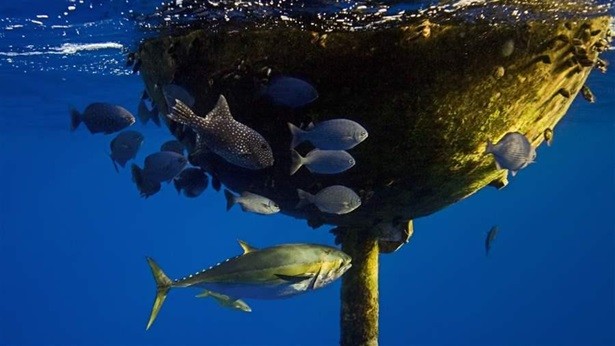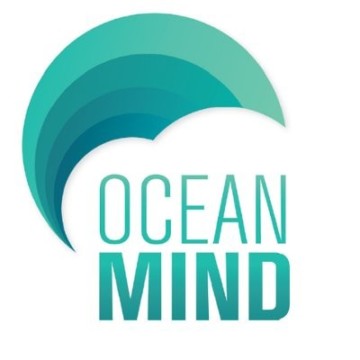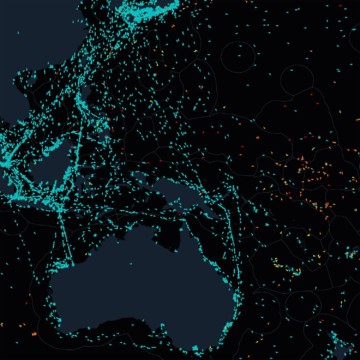OceanMind: Earth Observation and AI to support compliant and sustainable tuna fishing

A UK-based not-for-profit organisation developed a platform that helps food retailers to validate fishing methods of tuna.
OceanMind
 OceanMind is a not-for-profit organisation that powers marine enforcement and compliance to protect the ocean’s ability to provide for human wellbeing. OceanMind aims at supporting governmental authorities and food suppliers, mainly seafood buyers, by combining maritime expertise and knowledge with advanced technologies. Originally launched in 2014 as the “Project Eyes on the Seas”, resulting from a collaboration between the Satellite Applications Catapult and Pew Charitable Trusts, OceanMind became a new independent not-for-profit organisation in 2018.
OceanMind is a not-for-profit organisation that powers marine enforcement and compliance to protect the ocean’s ability to provide for human wellbeing. OceanMind aims at supporting governmental authorities and food suppliers, mainly seafood buyers, by combining maritime expertise and knowledge with advanced technologies. Originally launched in 2014 as the “Project Eyes on the Seas”, resulting from a collaboration between the Satellite Applications Catapult and Pew Charitable Trusts, OceanMind became a new independent not-for-profit organisation in 2018.
The challenge
 Overfishing is one of the main factors causing the decline of the ocean’s wildlife populations. According to the United Nations Food and Agriculture Organization (FAO), between 2017 and 2018, 1/3 of global fish stocks are classified as overfished and no longer biologically sustainable. In Europe, about 38% of the fish in the North-East Atlantic and the Baltic Sea is overfished. In the Mediterranean and the Black Sea, this percentage reaches 87% in total. Aggressive and destructive fishing methods are indeed one of the principal threats to biodiversity and habitats. For example, Fish Aggregation Devices (FADs) dramatically increase catch rates and reduce the resource and effort required per catch. Nevertheless, they also result in higher levels of bycatch, particularly of vulnerable species. In addition, often FADs are lost, adding to the marine waste problem. Validate the fishing methods for seafood suppliers is relevant today to provide the consumers with a sustainable product.
Overfishing is one of the main factors causing the decline of the ocean’s wildlife populations. According to the United Nations Food and Agriculture Organization (FAO), between 2017 and 2018, 1/3 of global fish stocks are classified as overfished and no longer biologically sustainable. In Europe, about 38% of the fish in the North-East Atlantic and the Baltic Sea is overfished. In the Mediterranean and the Black Sea, this percentage reaches 87% in total. Aggressive and destructive fishing methods are indeed one of the principal threats to biodiversity and habitats. For example, Fish Aggregation Devices (FADs) dramatically increase catch rates and reduce the resource and effort required per catch. Nevertheless, they also result in higher levels of bycatch, particularly of vulnerable species. In addition, often FADs are lost, adding to the marine waste problem. Validate the fishing methods for seafood suppliers is relevant today to provide the consumers with a sustainable product.
The satellite solution
In 2017, the OceanMind team developed an independent validation of source, legality, and fishing methods. The methodology merges a wide variety of data, including Vessel Monitoring System (VSM) data, Automatic Identification System (AIS) data, fishing vessels’ authorisations, and oceanographic and geospatial data derived from satellite images collected through multiple sources, including private companies as Spire, and Earthwatch, that represent the main validation tool for OceanMind.

The output of this data analysis is a risk assessment report delivered by OceanMind to their partners, mainly seafood suppliers and food retailers, to support traceability and inform their buying decisions. The multi-layered information analysis on the seafood supply chain allows users to verify the claims of the fishing practices made by a supplier and provides information on any suspected illegal behaviour.
The results
OceanMind developed its first report on FAD fishing methods for the British food retailer Sainsbury’s to validate the fishing methods adopted by the vessels in their tuna supply chain. OceanMind and Sainsbury’s are working together to ensure a long term and independent feedback mechanism to validate the legality and responsibility of tuna suppliers from the moment of capture. This approach can impact significantly fishing techniques and could serve as a case study for other supply chains such as agriculture.
Leveraging on OceanMind data and assessment, Sainsbury’s farmed fish sources are today 100% certified, and 82.3% of their wild-caught fish and seafood is considered as sustainable and environmentally friendly by the UK Marine Stewardship Council standards. The 2019 estimations from Sainsbury’s, highlighted that verified FAD-free tuna represents 90% of Sainsbury’s canned tuna offer and approximately 9% of their total fish sale.
